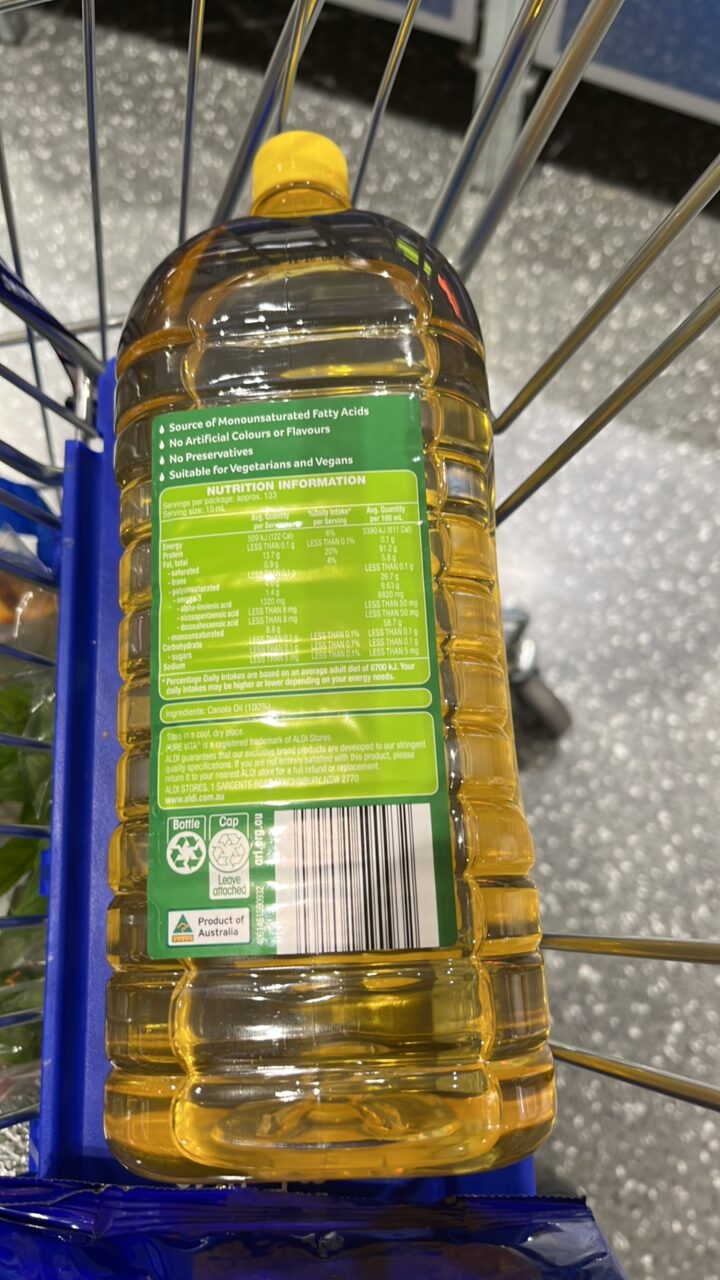
Barcode: 4061461590932
Canola Oil
HALAL
📝 Reason: Canola oil is derived from the seeds of the canola plant, which is permissible under Islamic dietary laws. There are no Haram ingredients or E-codes present in the product. The absence of meat or meat-derived ingredients further confirms its Halal status without the need for specific Halal certification for plant-based products.
🏷️ Category: Cooking Oil
📄 Certificates: Product Of Australia, Suitable For Vegetarians And Vegans, Source Of Monounsaturated Fatty Acids, No Artificial Colours Or Flavours, No Preservatives, Vegetarisch, Vegan
Ingredients:
Details
Understanding the Halal Status of Canola Oil
Canola oil, a versatile and widely used cooking oil, is derived from the seeds of the canola plant. It is important for those following Islamic dietary laws to know whether Canola oil qualifies as Halal. In this article, we will explore the Halal status of Canola oil, its ingredients, and any relevant certification.
What Makes Canola Oil Halal?
The Halal status of Canola oil comes primarily from its plant-based origins. According to Islamic dietary laws, foods that are derived from plants are typically permissible for consumption. In this case, Canola oil does not contain any Haram (forbidden) ingredients or animal products, making it acceptable for Muslims to use in their cooking.
According to the short explanation provided, “Canola oil is derived from the seeds of the canola plant, which is permissible under Islamic dietary laws. There are no Haram ingredients or E-codes present in the product. The absence of meat or meat-derived ingredients further confirms its Halal status without the need for specific Halal certification for plant-based products.”
Breaking Down the Ingredients
The sole ingredient in Canola oil is canola oil. This purity is a significant factor in its Halal status. Let’s take a closer look at the details:
- Ingredient: Canola oil
- Status: Halal
- Details: Derived from plants, generally considered Halal.
This ingredient is recognized by the Islamic Relief and many other dietary resources as permissible. Furthermore, the absence of any E-number coded additives within this product further consolidates its Halal claim.
Understanding E-Numbers and Ingredients
Canola oil does not include any E-coded substances or additives that might raise concerns over Halal compliance. According to the provided E-numbers data:
- E-Code: N/A
- Name: Canola oil
- Status: 0 (indicating that all components are Halal)
- Details: It is derived from plants and does not contain prohibited substances.
How Canola Oil Fits Into Your Diet
Canola oil is not only Halal but also a healthy choice for cooking. It is recommended for various uses, including frying, baking, and salad dressings due to its light flavor and high smoke point. In addition, Canola oil is suitable for vegetarians and vegans and is rich in monounsaturated fatty acids.
The product details reveal that Canola oil is Product of Australia, and it does not contain any artificial colors, flavors, or preservatives, making it a good fit for clean eating enthusiasts. The absence of these additives supports the integrity and quality of the product.
Conclusion
In conclusion, the Halal status of Canola oil is clear and supported by its ingredients. Since it is derived from plants without any meat or Haram substances, it is safe for Muslims to include in their diet. Additionally, its health benefits and suitability for various dietary needs further validate its place as a staple in kitchens everywhere. Always refer to reputable sources, such as Islamic Relief, for guidance on Halal products to ensure compliance with your dietary needs.
